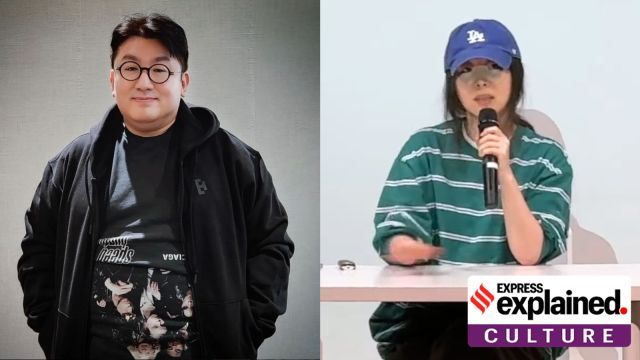Hybe, the South Korean entertainment company behind the popular K-pop group BTS, has seen much drama of late — including a teary press conference, allegations of illegal takeover, and more.
More than $800 million of Hybe’s market value was wiped out by falling stock prices in consequence, Bloomberg reported last month.

In recent years, Korean popular music or “K-pop” has emerged as a valuable cultural export, garnering hundreds of millions of global fans and generating massive revenues. The industry also plays a role in attracting tourists and contributes to the country’s economy.
Story continues below this ad
What’s going on with Hybe, and could it impact the industry at large? We explain.
First, what is Hybe?
The Korean music producer Bang Si-hyuk founded Hybe Corporation in 2005, a small music company that was then called Big Hit Entertainment. The K-pop industry was dominated at the time by three or four big players. Big Hit Entertainment launched a few artists and helped them produce music, but with only limited success. At one point, it came close to declaring bankruptcy.
In 2013, the company launched a seven-member pop/ rap group called BTS — ‘Bangtan Sonyeondan’ in Korean. The septet would go on to become a phenomenon, achieving massive domestic popularity and a devoted fan base within two to three years. BTS would eventually also dominate Western music markets on a scale not witnessed previously, with album sales in millions and many nominations for awards, including at the Grammys.
This success of BTS allowed Hybe to expand and launch several new artists. It also acquired other companies and created several subsidiary labels.
Story continues below this ad
In 2020, Hybe went public, and was valued at $4.1 billion. The next year, in view of its expanding business, the company was restructured.
What is the current problem at the company?
A Hybe subsidiary named ADOR has been engaged in a public spat with Hybe for a few weeks now.
In April 2024, Hybe ordered an audit of ADOR, alleging that its CEO Min Hee-jin was attempting to go solo and take over the company. Min had joined Hybe in 2019, and was made CEO two years later.
In 2022, Min oversaw the launch of a five-member K-pop girl group named NewJeans, which became wildly popular in Korea after releasing just a few songs. The group also made a mark globally in a short time with its upbeat, 2000s pop sounds. It bagged the Top Global K-Pop Artist award in 2023 at the Billboard Music Awards, one of the most prestigious industry awards in the United States.
Story continues below this ad
Individual members of the group have been tapped as ambassadors for major luxury brands such as Dior, Louis Vuitton, Armani, and Gucci, as is usual in the case of major K-pop stars.
However, Hybe has now claimed that Min and other senior ADOR executives were planning an illegal takeover of the label. According to The Korea Herald, Hybe also released screenshots of private text conversations between Min and others in the company.
After Hybe said it would report Min to police, Min held a two-hour-long press conference on April 25, where she was emotional and broke down and cried. She denied the allegations, and accused Hybe of mismanaging the label and NewJeans.
Min also claimed that the screenshots, including one where she was apparently in conversation with a shaman regarding professional decisions, had been taken out of context. At one point she is reported to have asked: “Can I not have a shaman friend?”
Story continues below this ad
More recently, Min has claimed that her creative ideas for NewJeans were copied by other girl groups under Hybe labels. This has driven intense online conversations among fans of various groups, with no consensus over siding with either Min or Hybe. There is also concern over the fate of NewJeans.
On Tuesday (May 14), some Korean media reports said Min had been replaced as the CEO of ADOR. However, no immediate confirmation was available from the company.
But why does all of this matter?
Hybe is likely concerned about the reputational damage this episode with Min can cause in the minds of the artists’ fans, and the markets and public at large. Yoon Joonwon, a fund manager at DS Asset Management, told Bloomberg: “Regardless of whether her claims are true, suspicions about Hybe’s management ability of [its] multi-label system will become dominant.”
In business terms, the goodwill of popular groups and their fans matters enormously. Ever since BTS members began their mandatory enlistment in the Korean military from 2022, their musical output as a collective has largely been nil. With its biggest artists silent, Hybe needs other groups to perform well.
Story continues below this ad
A recent article in the Financial Times also noted that major K-pop labels have of late have faced slowing growth prospects: “The wider K-pop industry struggles with the question of how to replicate the past decade’s success. Hybe’s shares are down more than 15 per cent since January, while shares of its rivals SM Entertainment, YG and JYP have also suffered double-digit falls over the past six months.”








































